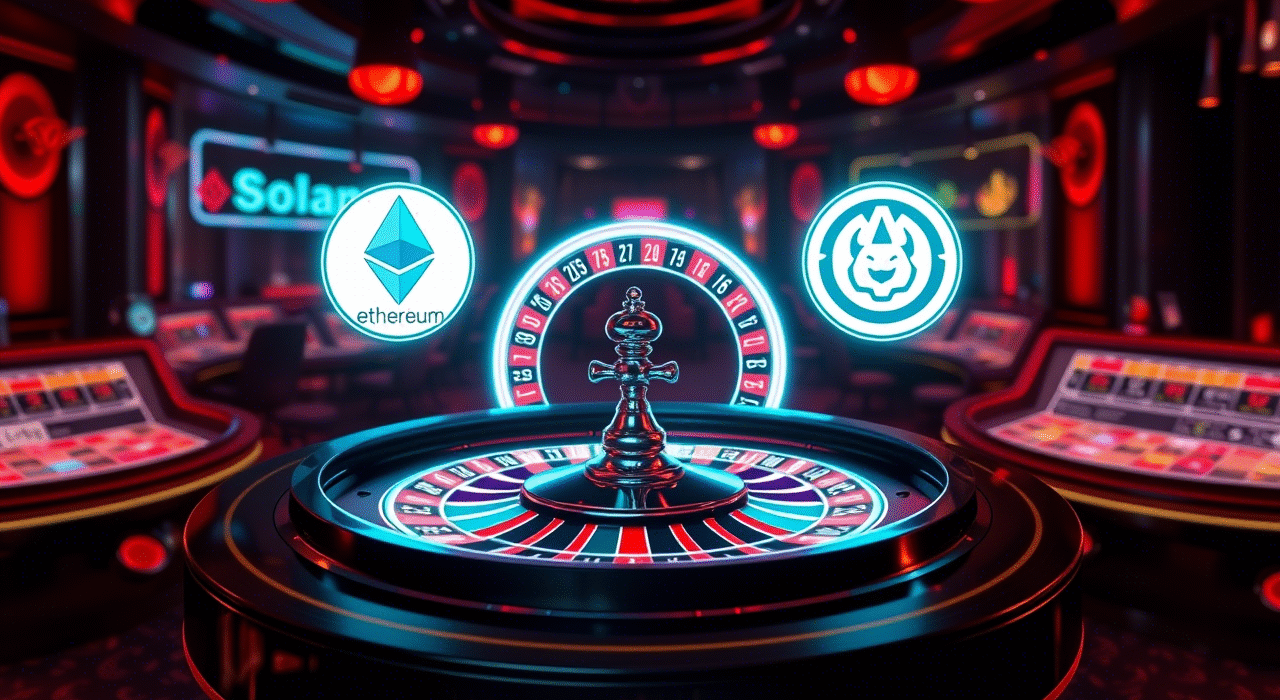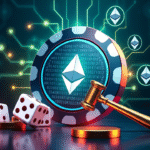From Bitcoin to the Blockchain Buffet
When Bitcoin first started showing up on online casino deposit pages, it was more gimmick than game-changer. In 2014, the idea that digital coins could fuel real-money bets was thrilling—but alien. Fast-forward to 2025, and Bitcoin is no longer the headline act. It’s just another name on an expanding menu of crypto payment options.
Enter altcoins—from Ethereum to Solana, Dogecoin to USDT. They’re faster, cheaper, sometimes more private, and increasingly tailored for online gaming. And they’re not just accepted—they’re actively shaping how gambling platforms function.
The question is no longer “Will crypto take over gambling?” It’s “Which cryptos will lead the next wave?”
The Early Years: Bitcoin Opened the Door
For nearly a decade, Bitcoin reigned as the de facto crypto for gambling. Why?
- Pseudonymity: Ideal for privacy-focused players.
- Low fees: Especially compared to credit cards or bank wires.
- Borderless payments: No bank approval needed.
It was a powerful proposition—especially for players in gray markets like India, Brazil, and parts of Africa where fiat gambling was restricted.
But as adoption soared, so did the problems:
- Slow transaction times
- Volatile gas fees
- Confirmation delays
- Network congestion
By 2020, BTC was no longer cutting it for high-volume or fast-play gamblers. The market started asking: What else is out there?
Ethereum: Smart Contracts, Smarter Gaming?
Ethereum was the natural next step—thanks to its support for smart contracts. Platforms like FunFair, Edgeless, and Virtue Poker leveraged ETH’s flexibility to introduce provably fair gaming, automated payouts, and even on-chain casinos.
But again—ETH had its own issues:
- High gas fees (especially during bull runs)
- Scalability concerns
- Slow adoption by traditional operators
Still, Ethereum gave the industry a taste of what was possible when code—not corporations—ran the tables.
Enter the New Breed: Altcoins Built for Gambling
The 2023–2025 cycle saw an explosion of altcoins fine-tuned for gambling’s needs:
1. Solana (SOL)
- Lightning-fast transactions (under 1 second)
- Negligible fees
- Popular on newer decentralized casinos like DripDrop and SolCasino
2. Polygon (MATIC)
- Ethereum-compatible, but faster and cheaper
- Powers several NFT gambling integrations and metaverse casinos
3. USDT / USDC (Stablecoins)
- Pegged to USD = no volatility
- Ideal for risk-averse players and fast withdrawals
- Heavily used on platforms like Stake.com, BC.Game, and Cloudbet
4. XRP (Ripple)
- Rapid transfers
- Preferred in Latin American markets
- Gaining traction due to low fees and increasing exchange support
5. DOGE & SHIB (Meme Coins)
- Surprisingly sticky user base
- Accepted for small-stakes gambling, especially slots and micro-bets
- Appeal to younger, community-driven gamblers
Why Altcoins Work So Well for Gambling
Several factors make altcoins a near-perfect fit for iGaming:
| Advantage | Impact on Gambling |
| Low Fees | Makes micro-betting feasible |
| Speed | Instant deposits = better user experience |
| Programmability | Enables on-chain games, smart bonuses |
| Privacy | Especially with coins like Monero or Dash |
| Market Demand | Younger players prefer crypto-native payments |
This is more than a trend—it’s a structural shift in how payments are processed, how games are verified, and how trust is built.
Operators Are Quietly Becoming Crypto Wallets
Once hesitant, big-name operators are evolving. Brands like Stake, Rollbit, and TrustDice have:
- Built in multi-chain wallets
- Launched token-based loyalty programs
- Offered staking rewards for holding their native tokens (like RLB or FUN)
Even legacy giants like Betway and 888 Holdings are experimenting with crypto partnerships to keep pace with this new ecosystem.
This is no longer fringe. It’s mainstream evolution.
The Regulatory Conundrum
Of course, it’s not all smooth sailing. Regulators are scrambling to catch up.
Challenges include:
- KYC/AML compliance with pseudonymous wallets
- Taxation of winnings in stablecoins or tokens
- Licensing hurdles in jurisdictions with fiat-only frameworks
- Money laundering risks with privacy coins
Some regulators, like the Isle of Man Gambling Commission, are open to crypto if operators follow strict reporting protocols. Others, like the UKGC, remain cautious—though not outright hostile.
Expect global divergence, where certain regions become crypto-friendly gambling hubs while others erect barriers.
What About the Players?
For players, altcoins offer:
- Choice: Use the coin they already hold.
- Control: Faster withdrawals, fewer restrictions.
- Anonymity: Critical in countries where gambling is frowned upon.
- Community: Some coins like $FUN or $RLB offer perks for holders.
But there’s also risk:
- Volatility (especially with non-stablecoins)
- Lack of chargebacks
- Poorly secured wallets or phishing scams
This calls for better education and clearer operator disclosures, especially when tokens are deeply integrated into reward systems.
NFTs, DAOs & the Next Crypto Frontier
Altcoins aren’t just about payments anymore.
- NFTs now represent VIP passes, exclusive tournaments, and unique bet multipliers.
- DAOs are forming to govern crypto casinos, giving token holders voting rights over platform changes.
- Tokenomics increasingly influence user retention—blurring the line between gambling and investment.
Gambling is becoming more game-like, more community-driven, and less centralized—thanks to altcoins.
The Future: Will One Coin Rule Them All?
Unlikely.
The real future is multi-chain. Just as we use different apps for different tasks, players will use:
- USDT for stability
- SOL for speed
- ETH for high-stakes games
- DOGE for fun
- Casino-native tokens for loyalty
Operators that embrace this flexibility will thrive. Those that cling to fiat-only systems? Risk obsolescence.
Final Thoughts: Not Just a Payment Method—A Paradigm Shift
Altcoins aren’t just upgrading the cashier’s desk—they’re rebuilding the casino from the ground up. With smart contracts, DAOs, NFTs, and tokenized rewards, the very definition of what a gambling platform can be is expanding.
The next jackpot won’t just come in BTC. It might come in SOL, MATIC, or a token minted by the platform itself—and the winners will be those who adapt fast, think global, and bet on evolution.











